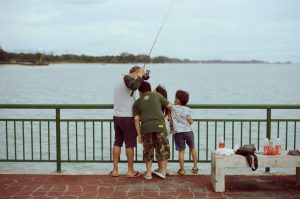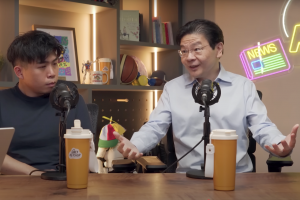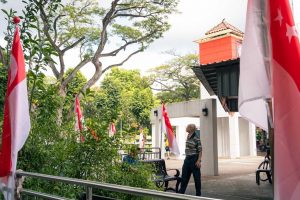It’s the 14th of May, 2050. The first anniversary of Ah Ma’s death.
At precisely 9 AM, my mother enters my room. “Your father and I are heading off,” she says, “You’re sure you don’t want to come with us to the cemetery? It’s a short ride.”
I nod, ignoring how puzzled she looks. While I have every intention of going to pay my respects to Ah Ma, I’ve always wanted to do it my way—the long way.
Almost as soon as they leave, my Home Assistant beeps before announcing, “9:30 AM. Time to visit Ah Ma’s old haunts. Nearest transport: 25m from current location.”
“Right on time,” I think to myself.
Grabbing my helmet, I make a beeline for the bike park downstairs. After whipping out my phone for a quick scan of a bicycle’s QR code, I’m off.

I might not have been old enough to be disciplined, but I was smart enough to know that she wanted me to join her just so she would have an extra bicycle to help transport the groceries home.
In those days, when cars and motor vehicles plied the roads, everyone thought her strange for wanting to cycle everywhere. Little did they know how forward-looking my Mom was.
Of course, my 8-year-old self couldn’t understand this. All I wanted was to spend my time either playing video games or pretending to be a pirate at the nearby playground.
This is where Ah Ma always stepped in. After breakfast with Mom at the hawker centre, she would whisk me off to the nearby playground, after which we would all cycle home together, plugged into our AR headsets and listening to our synchronised family playlist—a compromise of sorts.

At the same time, in all the years I’ve known my Ah Ma, she has never once jaywalked. Not even when there were no bikes around.
When I asked, she explained that when she was 19-years-old, she got into a car accident that left her in the hospital with a concussion and several broken ribs.
She shouldn’t have been jaywalking along such a busy road, but my Ah Ma thinking she was superwoman? That’s not even surprising.
When the car came speeding out of nowhere, she froze like a deer in the headlights. According to Ah Ma, the driver realised that he was going to hit her seconds too late and instead of swerving into the roadside bushes, he jammed his brakes and blared his horn for all it was worth.
Safe to say, it didn’t work.
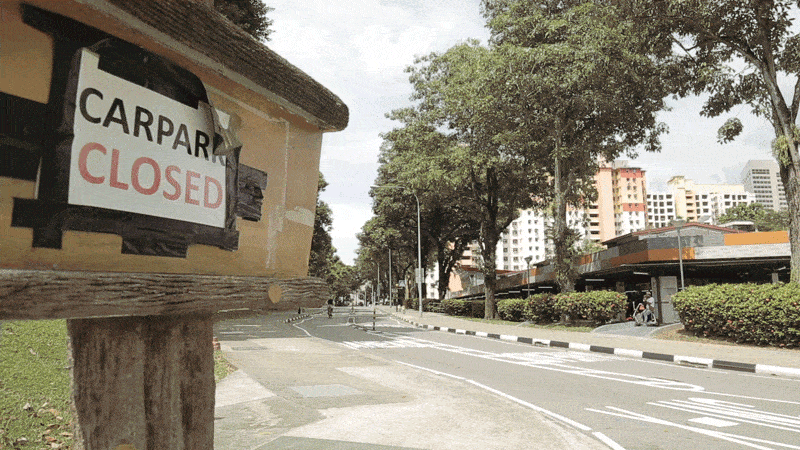
In school, teachers used to show us old pictures of streets and highways lined with cars. Through VR environments, we were immersed in a culture where everyone wanted a car, and those who owned one cherished it like family. There were even special apartments to house your car and some genius even invented a ‘wax’ for its metal ‘skin’.
Fast-forward 25 years and none remain. Despite our decimation of the earth’s fossil fuels and the failure of technology to provide us with useable clean-energy cars, we’ve adjusted remarkably well to a world that runs on just two wheels.
Bike parks have replaced car parks. Speed bumps have been paved over and roadside shelters now house cyclists on rainy days. Discreetly placed on almost every corner are solar-powered screens displaying everything from directions to the best restaurants nearby.
Life may be a little slower, but everyone is much happier.
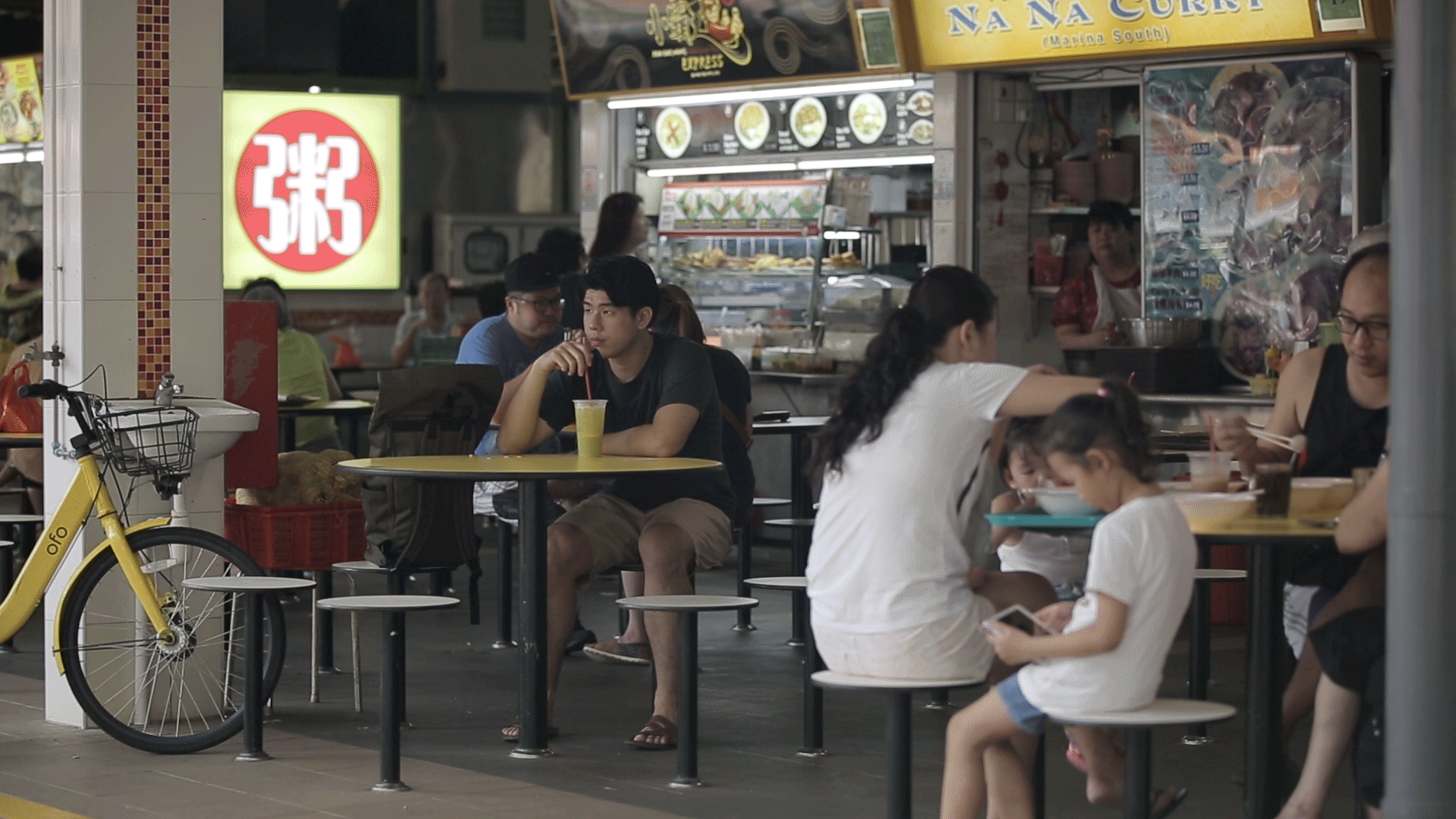
She never ate more than a few bites herself, and would instead sip kopi from her favourite metal straw and smile as I shoved forkfuls into my mouth.
From time to time, she would muse how food tastes better these days. Her reason: with no more cars on the road, the air is fresher, and so our taste buds have become more refined.
“You’re a lucky boy,” she would say, and I would roll my eyes and chuckle to myself, wondering where this logic of hers came from.
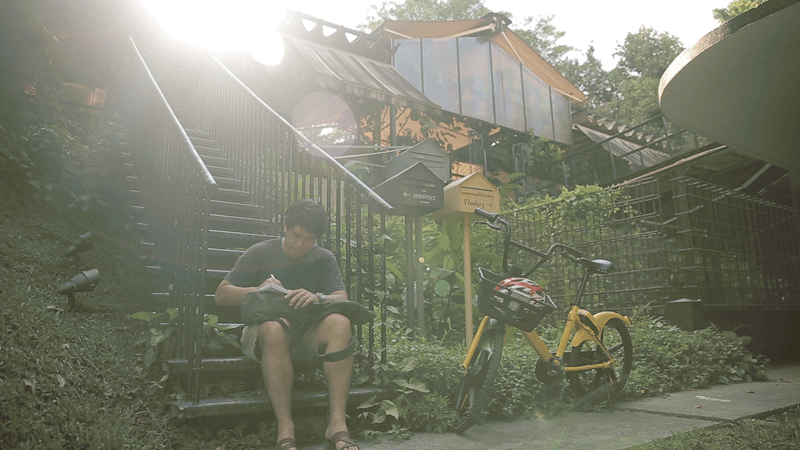
Designed to look like a greenhouse, this charming little cafe is where Ah Gong and Ah Ma first set eyes on each other. It’s where they exchanged numbers, went on their first date, and where Ah Gong proposed several years later.
5 years ago, it was on the verge of closing until cyclists began rediscovering old haunts that had been abandoned after cars went out of use.
Nowadays, hardly anyone meets the ‘old-fashioned way anymore—especially not since the use of dating algorithms, personality matches, and Facebook pairings have become ubiquitous.
Yet as Ah Ma once said, “There’s no science to love. You can’t explain it. It just feels right.”
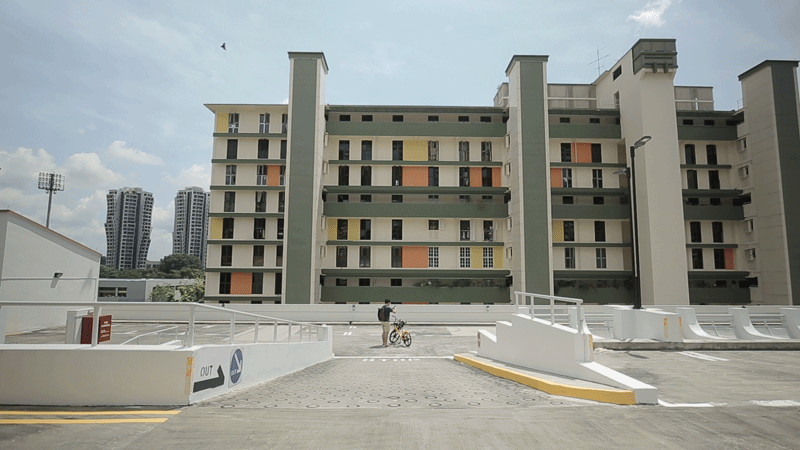
With no cars around, the multi-storey car park directly across from Ah Ma’s flat became our own playground. It’s where my cousins and I would spend time before dinner honing our football skills; with the perpetual distant rumbling of cars now gone, our excited screams would fill the estate.
From Ah Ma’s kitchen, she would watch while preparing dinner. When it was ready, she would send the family drone to get us, and we’d rush back.
Since her death, our families don’t meet nearly as often—if at all.
I hope they’re doing well.
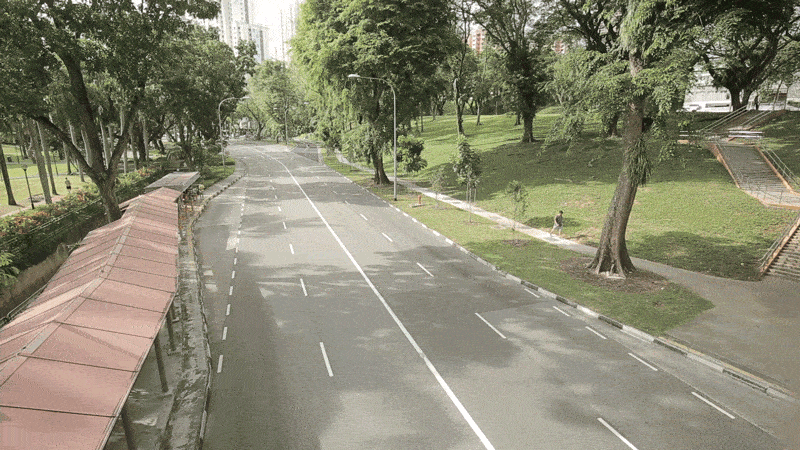
I miss her, but I know she’s never coming back. The only thing left to do is honour her memory, and keep moving forward.
Can you envision a future without cars? Let us know at community@ricemedia.co.


